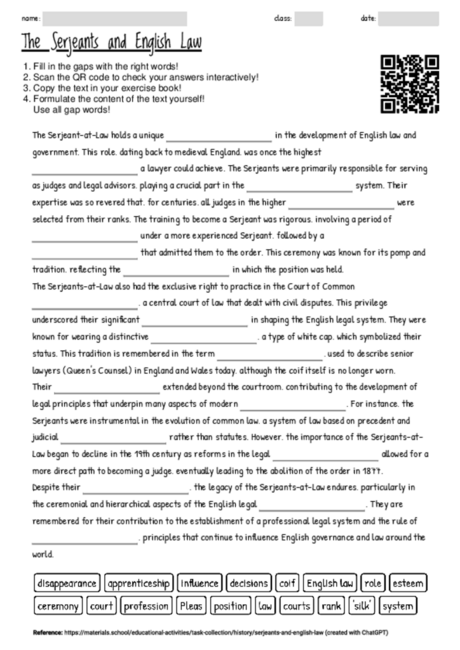The Serjeants and English Law
The cloze text about the Serjeant-at-Law and their role in the development of English law and government offers a multifaceted approach to learning about historical legal professions and their impact on modern legal systems. Cloze texts, by nature, encourage students to focus on key terms and concepts, enhancing vocabulary and comprehension around a topic that might otherwise seem dense or inaccessible. This particular text serves not only as a history lesson but also integrates the development of legal principles, such as the common law system, which is foundational to understanding current legal frameworks in English-speaking countries.
By requiring learners to fill in missing terms, the text promotes active engagement and deeper processing of the information presented, which is more effective for memory retention than passive reading. Furthermore, the selection of terms to be omitted, such as 'Serjeant-at-Law,' 'court,' 'apprenticeship,' and 'law,' are central to the narrative, pushing students to grasp the significance of these roles and concepts within the historical context of English law.
The text also introduces students to the evolution of legal professions and the judiciary system, highlighting the importance of tradition, ceremony, and the gradual reforms that have shaped the legal landscape over centuries. This can spark discussions on how legal systems evolve and the balance between maintaining tradition and adapting to societal changes.
Lastly, using a cloze text on this topic can bridge historical knowledge with contemporary understanding, as students learn about the origins of practices and terms ('silk') still in use today. It makes the past relevant to the present, encouraging students to see the continuity and change in legal systems. This approach not only aids in the comprehension of historical developments but also fosters critical thinking about the evolution and implementation of law and governance through time.

